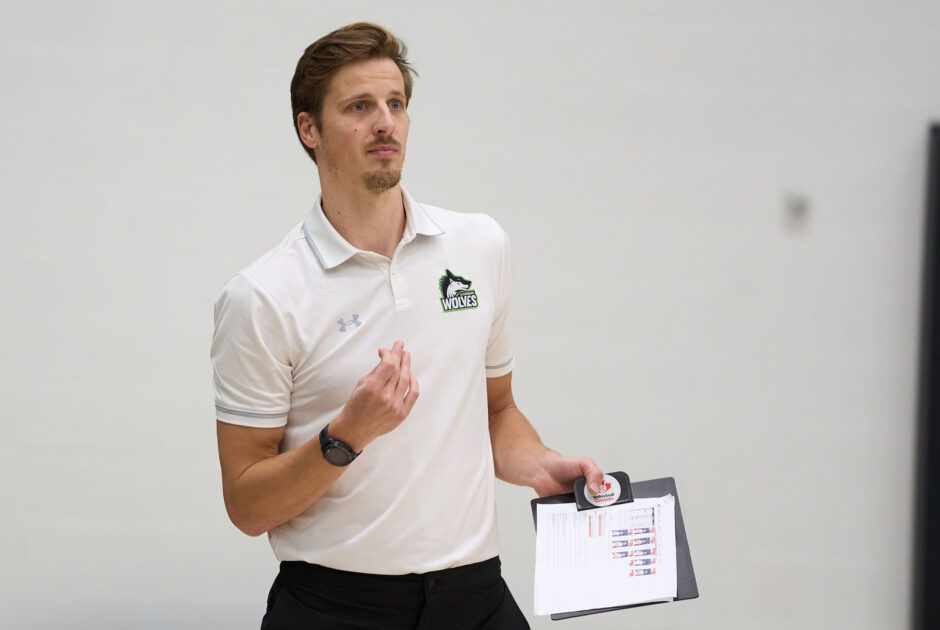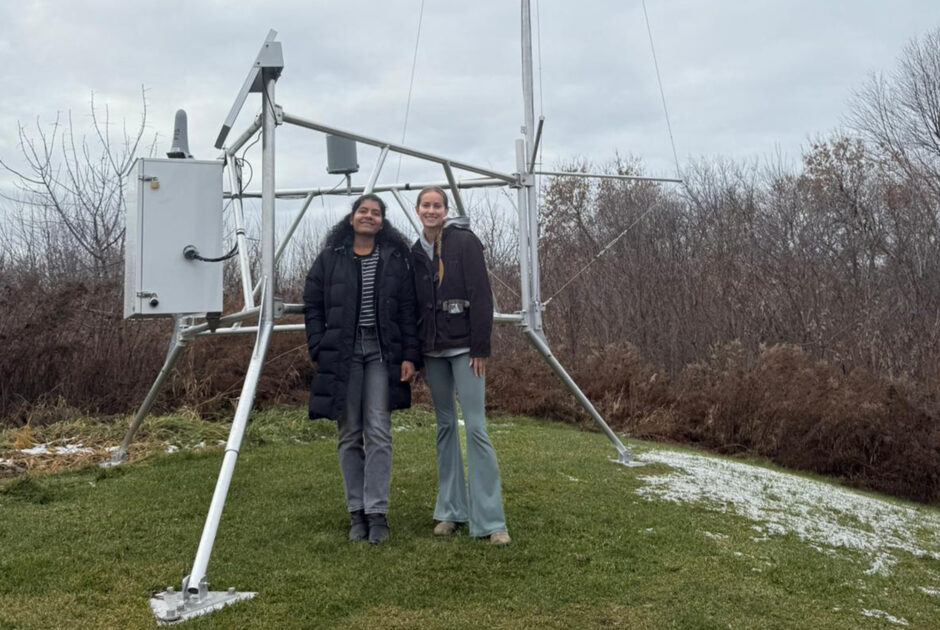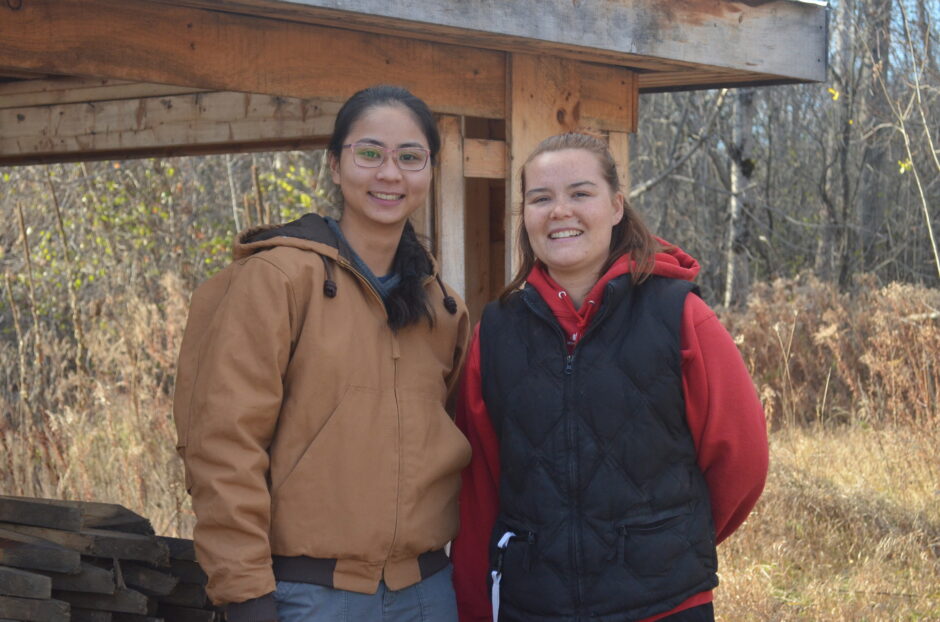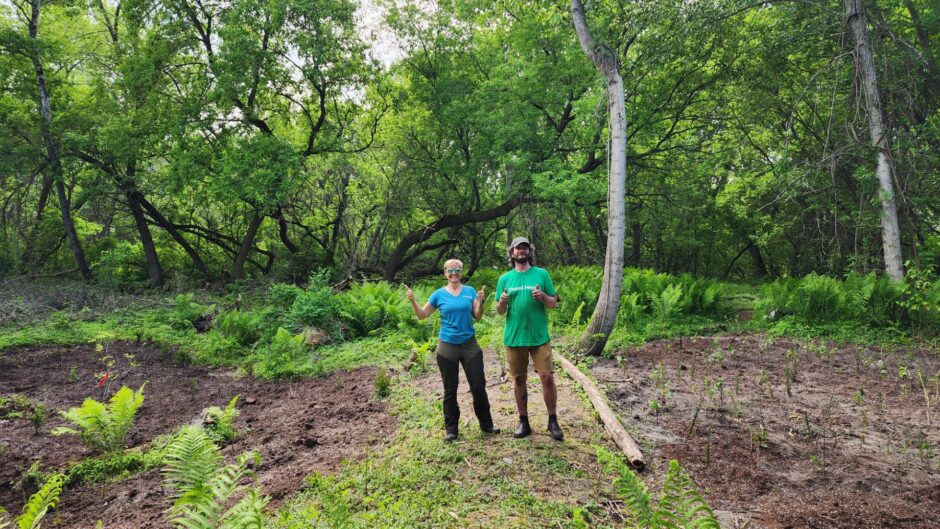Algonquin helps students with autism navigate post-secondary life
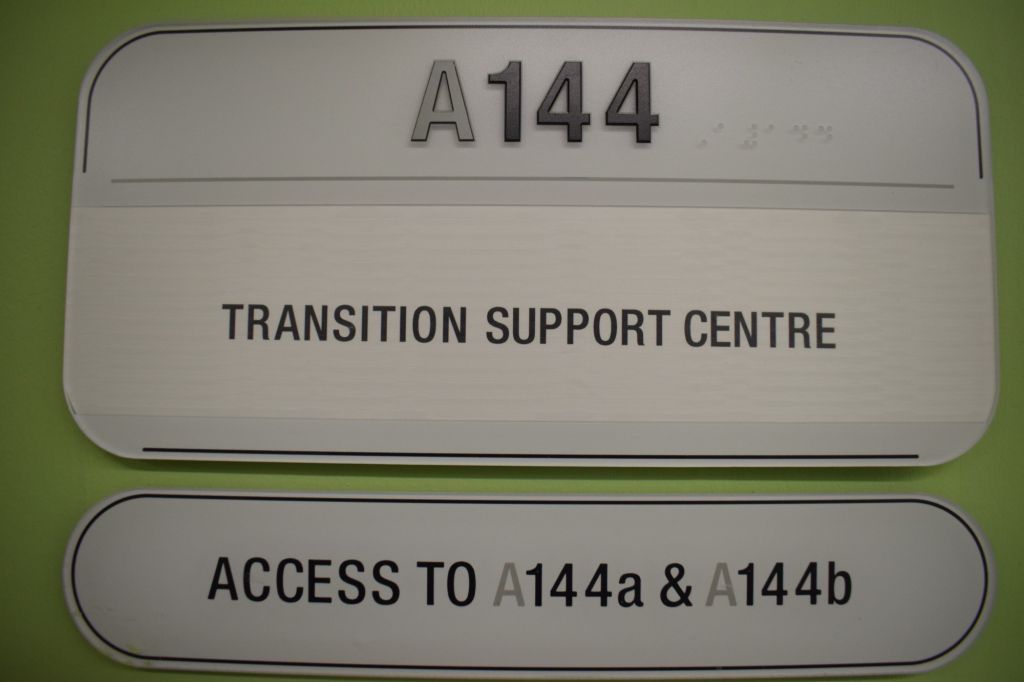
A single square desk sits in the middle of the room, with four tan chairs facing it.
The walls of the room are crisp and white.
A radio and a Zen garden sit on the right. The sand in the garden lay still but parallel line indentations remained, evidence of its recent use.
This is the drop-in space in A144, the main hub of supports and services offered by the Transition Support Centre (T.S.C.). Students with autism can access this centre for “just in time” support from disability counsellors and learning strategists, who are trained to assist in navigating the post-secondary environment.
“I accessed services as a student with a disability and it encouraged me to continue in a field of accessible learning and equal opportunity,” said Stephanie McGee, a learning strategist at the centre, who said she enjoys what she does because of her personal experience.
Aside from the drop-in space, the T.S.C. offers a variety of services. Students are offered one-on-one progress meetings, as well as invitations to social events and workshops that teach life skills.
An option of three days in the summer to meet teachers and learn school skills is also offered. Students who accept this support are often more prepared than their classmates and feel empowered because they can answer peer questions.
There are workshops for faculty that provide learning approach suggestions to set all students up for success.
The T.S.C. first received funding in 2013, when the Centre for Accessible Learning identified a need to support and maintain the success of students on the spectrum.
The program was started as a pilot project with funds for three years. Since those first three years, the T.S.C. had funding renewed yearly by submitting reports to the Ministry of Training, Colleges and Universities.
There is funding until April 2019, until approval is heard from the ministry.
There have been 280 students supported since the program’s start date in 2014.
One of them is Mary-Ellen Morris, 27, a graduate of Algonquin. Morris was supported by the T.S.C. from 2017-2018. She self-identifies as someone who is proud of her autism diagnosis.
“I am proud to be on the spectrum. I look at the world differently, I come up with different problems and solutions because I think differently,” she said.
Morris said she used the drop-in space “as soon as they opened until they closed, leaving only for classes and food.”
The T.S.C. is open Monday to Friday from 9 a.m.- 4 p.m.
Project coordinator of the T.S.C., Heather Peace, said she has a desire to “facilitate people’s sense of belonging to a community.”
Peace is proud of the support from disability services for students.
“Other disability support offices are doing fabulous things to support students on the spectrum.”
She understands Algonquin’s luck having such fabulous support while other Ontario schools don’t.
“Is it fair that there’s one at Algonquin but not somewhere else?” Peace asked.
The success of this program takes an investment of time, well-trained personnel, and space that are often essential to student success.
“I am hopeful that the necessity of these supports for students on the spectrum will continue to be funded at Algonquin and more widely across Ontario to facilitate student access, enhance college-wide capacity to accept and celebrate autism and promote more positive life outcomes for folks on the spectrum,” said Peace.
Peace knows without question the T.S.C. supports intelligent, creative, and diverse Algonquin students who get into the school on their own merits, with their own high school diplomas.
“These are Algonquin College students who just choose to access services and success in post-secondary,” said Peace.





